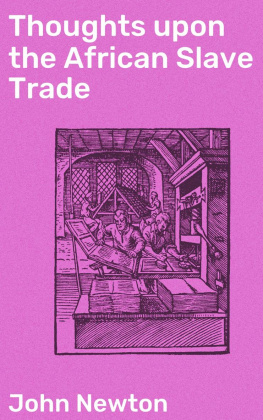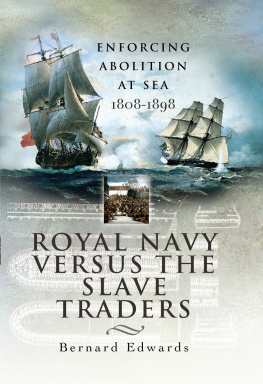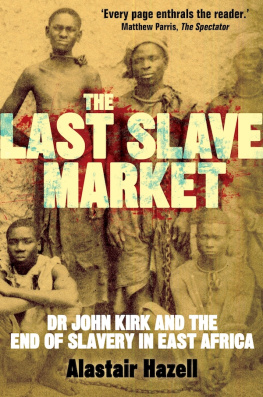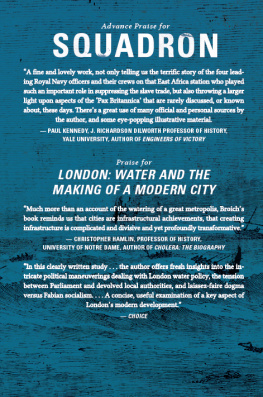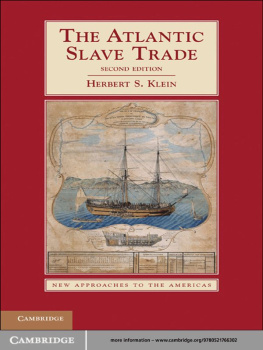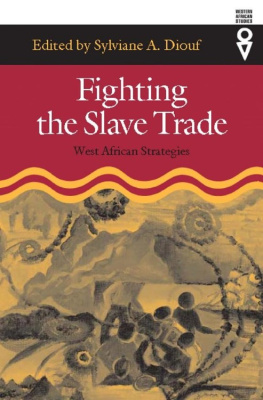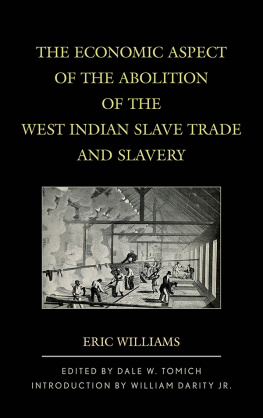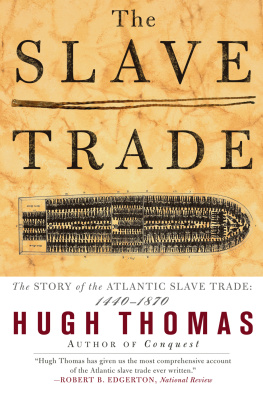Table of Contents
TO
THE RIGHT HONOURABLE WILLIAM, LORD GRENVILLE,
THE RIGHT HONOURABLE CHARLES, EARL GREY,
THE RIGHT HONOURABLE FRANCIS, EARL MOIRA,
THE RIGHT HONOURABLE GEORGE JOHN, EARL SPENCER,
THE RIGHT HONOURABLE HENRY RICHARD, LORD HOLLAND,
THE RIGHT HONOURABLE THOMAS, LORD ERSKINE,
THE RIGHT HONOURABLE EDWARD, LORD ELLENBOROUGH,
THE RIGHT HONOURABLE LORD HENRY PETTY,
THE RIGHT HONOURABLE THOMAS GRENVILLE,
NINE OUT OF TWELVE OF HIS MAJESTY'S LATE CABINET MINISTERS,
TO WHOSE WISE AND VIRTUOUS ADMINISTRATION BELONGS
THE UNPARALLELED AND ETERNAL GLORY
OF THE ANNIHILATION,
AS FAR AS THEIR POWER EXTENDED,
OF ONE OF THE GREATEST SOURCES OF CRIMES AND SUFFERINGS,
EVER RECORDED IN THE ANNALS OF MANKIND;
AND TO THE MEMORIES OF
THE RIGHT HONOURABLE WILLIAM PITT,
AND OF
THE RIGHT HONOURABLE CHARLES JAMES FOX,
UNDER WHOSE FOSTERING INFLUENCE
THE GREAT WORK WAS BEGUN AND PROMOTED;
THIS HISTORY
OF
THE RISE, PROGRESS, AND ACCOMPLISHMENT OF THE ABOLITION OF THE SLAVE TRADE,
IS RESPECTFULLY AND GRATEFULLY INSCRIBED.
PREFATORY REMARKS
TO
THE PRESENT EDITION
The invaluable services rendered by Thomas Clarkson to the great question of the Slave Trade in all its branches, have been universally acknowledged both at home and abroad, and have gained him a high place among the greatest benefactors of mankind. The History of the Abolition which this volume contains, affords some means of appreciating the extent of his sacrifices and his labours in this cause. But after these, with the unwearied exertions of William Wilberforce, had conducted its friends to their final triumph, in 1807, they did not then rest from their labours. There remained four most important objects, to which the anxious attention of all Abolitionists was now directed.
First, The law had been passed, forced upon the Planters, the Traders, and the Parliament, by the voice of the people; and there was a necessity for keeping a watchful eye over its execution.
Secondly, The statute, however rigorously it might be enforced, left, of course, the whole amount of the Foreign Slave traffic untouched, and it was infinitely to be desired that means should be adopted for extending our Abolition to other nations.
Thirdly, Some compensation was due to Africa, for the countless miseries which our criminal conduct had for ages inflicted upon her, and strict justice, to say nothing of common humanity and Christian charity, demanded that every means should be used for aiding in the progress of her civilization, and effacing as far as possible the dreadful marks which had been left upon her by our crimes.
Lastly, Many of those whom we had transported by fraud and violence from their native country, and still more of the descendants of others who had fallen a sacrifice to our cruelties, and perished in the course of nature, slaves in a foreign land, remained to suffer the dreadful evils of West India bondage. It seemed to follow, that the earliest opportunity consistent with their own condition, should be taken to free those unhappy beings, the victims of our sordid cruelty; and all the more to be pitied, as we were all the more to be blamed, because one result of our transgression was the having placed them in so unnatural a position, that their enemies might seem to be furnished with an argument more plausible than sound, drawn from the Negro's supposed unfitness for immediate emancipation.
In order to promote these four great objects, a society was formed in May 1807, called the African Institution, and although, at first, its labours were chiefly directed to the portion of the subject relating to Africa, by degrees, as the extinction of the British Slave Trade was accomplished, its care was chiefly bestowed on West India matters, which were more within the power of this country than the slave traffic, still carried on by foreign nations. But it is necessary in the first place, to recite the measures by which our own share in that enormous crime was surrendered, and the stigma partially obliterated, which it had brought upon our national character, Thomas Clarkson bore a forward and important part in all these useful and virtuous proceedings. His health was now, by rest among the Lakes of Westmoreland for several years, comparatively restored and his mind once more bent itself to the accomplishment of the grand object; of his life, we may he permitted reverently to suggest, the end of his existence.
Mr. Stephen and others, at first, deemed the certainty of the Act passed in March 1807, being evaded under the stimulus, and the insurance against capture afforded by the enormous profits of the traffic, so clear, that they expected the law to become, almost from the time of its being enacted, a dead letter. There soon appeared the strongest reasons to concur in this opinion, the result of long and close observation in the Islands where Mr. Stephen had passed part of his life. The slave-dealers knew the risk of penalty and forfeiture which they ran; but they also knew that if one voyage in three or four was successful, they were abundantly remunerated for all their losses; and, therefore, they were no more restrained by the Abolition Act, than by any moderate increase of the cost or the risk attending their wicked adventures. This was sure, to be the case, as long as the law only treated slavetrading as a contraband commerce, subjecting those who drove it to nothing but pecuniary penalties. But it was equally evident that the same persons who made these calculations of profit and risk, while they only could lose the ship or the money by a seizure, would hesitate before they encountered the hazard of being tried as for a crime. And, surely, if ever these was an act which deserved to be declared felony, and dealt with as such, it was this of slave-trading. Accordingly, in 1810, Mr. Brougham, then a member of the House of Commons, in moving an address to the crown, (which was unanimously agreed to,) for more vigorous measures against the traffic, both British and Foreign, gave notice of the Bill, which he next year carried through Parliament, and which declared the traffic to be a felony, punishable with transportation. Some years afterwards it was by another Act made capital, under the name of Piracy, but this has since been repealed. Several convictions have taken place under the former Act, (of 1811,) and there cannot be the least doubt that the law has proved effectual, and that the Slave Trade has long ceased to exist as far as the British dominions are concerned.
That foreign states continue shamefully to carry it on, is no less certain. There are yearly transported to Cuba and Brazil, above 100,000 unhappy beings, by the two weakest nations in Europe, and these two most entirely subject to the influence and even direct control of England. The inevitable consequence is, that more misery is now inflicted on Africa by the criminals, gently called Slave-traders, of these two guilty nations, than if there were no treaties for the abolition of the traffic. The number required is always carried over, and hence, as many perish by a miserable death in escaping from the cruisers, as reach their destination. The recitals of horror which have been made to Parliament and the country on this dreadful subject, are enough to curdle the blood in the veins and heart of any one endued with the common feelings of humanity. The whole system of prevention, or rather of capture, after the crime has been committed, seems framed with a view to exasperate the evils of the infernal traffic, to scourge Africa with more intolerable torments, and to make human blood be spilt like water. Our cruisers, are excited to an active discharge of their duty, by the benefit of sharing in the price fetched when the captured ship is condemned and sold; but this is a small sum, indeed, compared with the rich reward of head-money held out, being so much for every slave taken on board. It is thus made the direct interest of these cruisers, that the vessels should have their human cargoes on board, rather than be prevented from shipping them. True, this vile policy may prove less mischievous where no treaty exists, giving a right to seize when there are no slaves in the vessel, because here a slave ship is suffered to pass, how clear soever her destination might be; yet, even here, the inducement to send in boats, and seize as soon as a slave or two may be on board, is removed, and the cruiser is told, "only let all these wretched beings be torn from their country, and safely lodged in the vessel's hold, and your reward is great and sure." Then, whenever there is an outfit clause, that is a power to seize vessels fitted for the traffic, this mischievous plan tends directly to make the cruiser let the slaver make ready and put to sea, or it has no tendency or meaning at all. Accordingly, the course is for the cruiser to stand out to sea, and not allow herself to be seen in the offing the crime is consummated the slaves are stowed away the pirate captain weighs anchor the pirate-vessel freighted with victims, and manned by criminals fares forth the cruiser, the British cruiser, gives chace and then begin those scenes of horror, surpassing all that the poet ever conceived, whose theme was the torments of the damned and the wickedness of the fiends. Casks are filled with the slave, and in these they are stowed away; or to lighten the vessel, they are flung overboard by the score; sometimes they are flung overboard in casks, that the chasing ship may be detained by endeavours to pick them up; the dying and the dead strew the deck; women giving birth to the fruit of the womb, amidst the corpses of their husbands and their children; and other, yet worse and nameless atrocities, fill up the terrible picture, of impotent justice and triumphant guilt. But the guilt is not all Spanish and Portuguese. The English Government can enforce its demands on the puny cabinets of Madrid and Lisbon, scarce conscious of a substantive existence, in all that concerns our petty interests: wherever justice and mercy to mankind demand our interference, there our voice sinks within us, and no sound is uttered. That any treaty without an outfit clause should be suffered to exist between powers so situated, is an outrage upon all justice, all reason, all common sense. But one thing is certain, that unless we are to go further, we have gone too far, and must in mercy to hapless Africa retrace our steps. Unless we really put the traffic down with a strong hand, and instantly, we must instantly repeal the treaties that pretended to abolish it, for these exacerbate the evil a hundred fold, and are ineffectual to any one purpose but putting money into the pockets of our men of war. The fact is as unquestionable, as it is appalling, that all our anxious endeavours to extinguish the Foreign Slave Trade, have ended in making it incomparably worse than it was before we pretended to put it down; that owing to our efforts, there are thrice the number of slaves yearly torn from Africa; and that wholly because of our efforts, two thirds of these are murdered on the high seas and in the holds of the pirate vessels.




